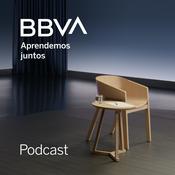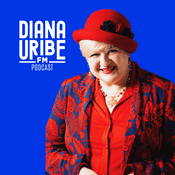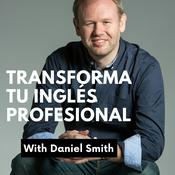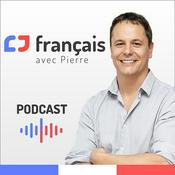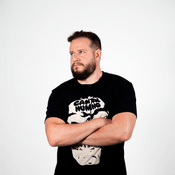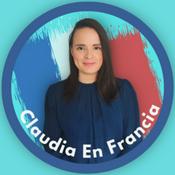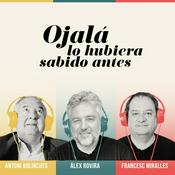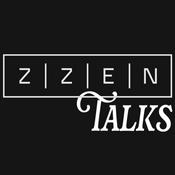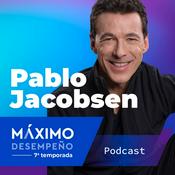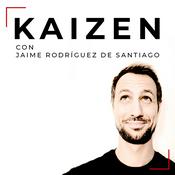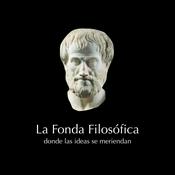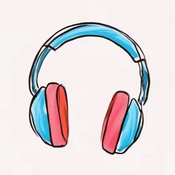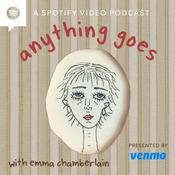12 episodios

What's My Age Again?
16/6/2025 | 46 min
In the season one finale of Plain View, Elise and Kristine explore the rich, complex, and often surprising experience of aging. From a 4-year-old to a 79-year-old sharing her "granny-isms," the episode features intimate stories from nearly every decade of life.Listeners will hear touching reflections on nostalgia, personal growth, physical changes, and the emotional terrain of getting older, from teenagers navigating anxiety, to women in their 30s and 40s finding confidence, women in their 50s, 60s, and 70s embracing freedom, a better sense of self-worth, and confidence. Along the way, Elise and Kristine share personal anecdotes, community responses, and research-backed insights on aging, and end with a guided practice to help you think more positively about aging. Timestamps & Key Topics:00:00–01:20 — Intro and why this episode matters01:21–04:18 — How we think about aging, community poll results, and key findings from Breaking the Age Code by Becca Levy04:30–06:11 — Reflections from a 4-year-old and a 14-year-old on happiness and memory06:55–08:30 — Childhood nostalgia from Elise, Kristine, and community submissions08:30–11:49 — Surprises about growing older and teen insights on emotional growth12:51–14:59 — When life really begins: answers from ages 22 to 3616:06–18:28 — Finding freedom in doing things your own way and early identity shaping18:45–21:45 — A poetic reflection on complexity and the beauty of both/and21:54–24:51 — What women in their 30s and 40s want younger people to know25:04–26:43 — Aging as strength: learning to do pull-ups and letting go of fear26:43–32:21 — Tensions around beauty, youth, wisdom, and physical limitations33:24–35:06 — Nostalgia for missed moments and the influence of grandmothers35:06–37:07 — Positive surprises about aging from Kristine’s mom and community37:07–39:13 — Sweet reflections from a 79-year-old about joy in the simple things39:13–40:46 — What concerns people most about aging40:46–44:42 — Guided reflection and visualization on positive aging by Kristine44:42–45:30 — Outro and final thoughts45:30–end — How to call the Plain View hotline and contributeResources we mentioned in the episode:Breaking the Age Code by Becca LevyAtomic Habits by James ClearDavid Bowie quote: "Aging is an extraordinary process whereby you become the person you always should have been." Connect with Us:plainview.worldon Instagram @plai.nviewElise Joseph James – elisejosephjames.comKristine Claghorn – claggie.comYou can also find us over on Substack: Elise & KristineThe Episode 10 cover is a photo by Elise Joseph James.

There Will Be Boundaries
09/6/2025 | 48 min
We all start out with boundaries (just think about a two-year-old yelling “no!”), but along the way, many of us were taught to grow out of them in order to stay liked, accepted, or safe. In this episode, Kristine and Elise explore how to notice when a boundary is needed, what makes boundaries hard to set and hold, and why boundaries are a skill that helps us deepen relationships, not shut them down. They share stories, community responses, and walk through six types of boundaries (from Nedra Glover Tawwab’s book Set Boundaries, Find Peace).Plus: what to do when someone doesn’t respect your boundary, how to set boundaries with yourself, and a short guided practice by Kristine to help you return to what you need.Timestamps & Key Topics:00:16 – Why we wanted to talk about boundaries and how they’re often misunderstood01:29 – How our boundaries are trained out of us in childhood02:55 – Personal story about early boundary-setting04:21 – Poll results: Are you good at setting boundaries?06:13 – Codependency and blurred boundaries in close relationships06:48 – Signs a boundary might be needed (resentment, burnout, etc.)09:07 – What makes it hard to set boundaries: guilt, people-pleasing, fear of confrontation10:36 – Guilt doesn’t mean you did something wrong; it’s part of the process12:31 – Examples of boundaries that improved relationships16:32 – Poll results: Do you have a hard time saying no?19:55 – What are boundaries? Sharing Nedra Glover Tawwab’s definition22:01 – How to communicate boundaries clearly and contextually24:02 – The six types of boundaries (physical, sexual, intellectual, emotional, material, time)31:53 – How to identify which boundaries might be missing in your life33:38 – Boundaries as self-protection and a form of self-respect34:56 – What to do when someone responds poorly to a boundary36:31 – Reflecting on the therapy-speak backlash and misusing “boundaries” as control38:48 – The 4 C’s of boundaries: Clarity, Consistency, Compassion, Consequence40:31 – Setting boundaries with yourself (time, habits, inner voice)42:13 – A short guided practice by Kristine to visualize and reinforce a needed boundaryResources we mentioned in the episode:Set Boundaries, Find Peace: A Guide to Reclaiming Yourself by Nedra Glover TawwabUntamed by Glennon DoyleConnect with Us:plainview.worldon Instagram @plai.nviewElise Joseph James – elisejosephjames.comKristine Claghorn – claggie.comYou can also find us over on Substack: Elise & KristineThe Episode 9 cover is a photo by Elise Joseph James.

Putting The Pro In Procrastination
02/6/2025 | 40 min
In this episode of Plain View, Kristine and Elise explore the hidden emotional layers behind procrastination: fear of failure, perfectionism, unclear goals, identity, and even past experiences with shame. They reflect on the neuroscience and psychology of procrastination, share their personal struggles with avoidance, and offer reframes that are gentler, more productive, and rooted in self-compassion. For our fellow pro procrastinators, this conversation will help you feel less alone and more curious about what your resistance might be trying to tell you.This episode closes with a short guided practice led by Kristine to help you take meaningful, compassionate action without needing to get it perfect.Timestamps & Key Topics:0:00 – Intro: We are both “pro” procrastinators.4:30 – Strategic delay vs. procrastination: what’s the difference?7:20 – “I procrastinate the things I care about most.” — Elise opens up about perfectionism and pressure.11:15 – Community question: “How has procrastination impacted your life?”13:45 – Kristine on the research: procrastination as emotional regulation (Sirois)17:30 – Why shame and early experiences (like family and schooling) shape our avoidance22:05 – Community question: “What is something you’re currently procrastinating?”24:40 – Fear of starting, identity, and the myth of “the right time” or “when I feel motivated”28:10 – How boredom and overstimulation make it harder to focus30:40 – Community question: “When you procrastinate, what feelings tend to come up?”34:15 – What might your resistance be trying to protect?37:20 – The emotional weight of undone tasks and the stories we tell ourselves when things are left hanging42:00 – Taking imperfect action, trust, and self-worth46:25 – Community question: “How do you usually talk to yourself after you procrastinate?”48:40 – A small-step practice for building momentum with compassionResources we mentioned in the episode: Procrastination: What It Is, Why It's a Problem, and What You Can Do about It by Fuschia M. SiroisAtomic Habits by James ClearThe Perfectionist’s Guide to Losing Control by Katherine Morgan SchaflerHow Long Does It Actually Take by Christi Newrutzen on TikTokConnect with Us:plainview.worldon Instagram @plai.nviewElise Joseph James – elisejosephjames.comKristine Claghorn – claggie.comYou can also find us over on Substack: Elise & KristineThe Episode 8 cover is a photo by Elise Joseph James.

Good Grief!
26/5/2025 | 1 h 17 min
In this episode of Plain View, Elise and Kristine talk about the topic of grief: what it is, how it shows up, and the many forms it can take. They share their own stories of navigating infertility and the grief that comes with longing, uncertainty, and the less visible forms of grief that often go unnamed.This is a deeply personal conversation about how we grieve the things we’ve lost, the futures we imagined, the identities we once held, and the changes we never saw coming. Through community reflections and small moments of meaning-making, they explore how we might live alongside grief without rushing to move past it.The episode closes with a short guided practice from Kristine to support you in whatever version of grief you may be carrying.Timestamps & Key Topics:00:00 – Introduction & why this is the most personal episode yet01:00 – Deep breaths before a heavy conversation02:00 – Rituals for grounding and preparing to talk about grief03:00 – Why structure didn’t feel right for this topic04:18 – Community responses: Have you experienced grief? How do you view it?05:30 – Defining grief beyond death: infertility, identity, dreams, transitions07:00 – Feeling less alone through the podcast and community08:48 – Elise shares her fertility story, grief, and healing13:06 – Societal expectations vs. personal desire16:46 – Kristine shares what it’s like to be in the uncertainty of infertility19:39 – Grieving something that’s never existed21:32 – The pain of comparison and stacked grief24:15 – Yearning as the heart of grief27:00 – The financial and emotional toll of fertility treatments29:27 – Unexpected growth, identity shifts, and finding meaning33:19 – How to support someone who is grieving36:19 – What grief feels like: vivid metaphors and physical sensations41:00 – Elise shares how she and Dan came to the decision not to have children50:00 – Identity, release, and rebuilding life without a role you once imagined52:10 – Community reflections: what helps you cope with grief53:08 – Grief and time: the science of experience and memory57:47 – Beauty and love in new forms: being a present aunt, friend, and guide01:09:49 – The quote: “To plant a garden is to believe in tomorrow”01:11:00 – Guided grief practice with KristineResources we mentioned in the episode:The Grieving Brain: The Surprising Science of How We Learn from Love and Loss by Mary-Frances O'Connor“There are years that ask questions and years that answer” – Zora Neale HurstonElise’s personal Substack essay It Only Has To Make Sense To You“To Plant A Garden Is To Believe In Tomorrow” IG postConnect with Us:plainview.worldon Instagram @plai.nviewElise Joseph James – elisejosephjames.comKristine Claghorn – claggie.comYou can also find us over on Substack: Elise & KristineThe Episode 7 cover is a photo by Elise Joseph James.

This Might Sound Boring
19/5/2025 | 45 min
In our dopamine-driven world, productivity and stimulation are the standard. Boredom can feel like a problem to avoid, which we can do easily now by scrolling our days away. But what if boredom is actually an important signal? One that can lead to creativity, presence, and emotional clarity? In this episode of Plain View, Kristine and Elise explore the lost art of boredom: why we avoid it, what it stirs up in us, and how learning to sit with it might reconnect us to what we actually need. They reflect on the psychology of boredom, its link to desire and discomfort, and how overstimulation might be making it harder for us to feel fulfilled. The episode also includes a short guided practice written by Kristine to help you welcome boredom not as something to fix, but as something to listen to.Timestamps & Key Topics:00:00 – Welcome & theme intro: Why boredom matters01:02 – Why it’s hard to say “I’m bored” out loud as an adult02:20 – The connection between boredom, desire, and overstimulation04:56 – The endless scroll: how digital life keeps us from experiencing boredom07:43 – Boredom and restlessness as a signal—not a problem09:19 – The paradox: wanting to escape boredom while longing for slowness10:46 – Emotional intimacy, silence, and fear of being alone with our thoughts13:02 – Boredom in grief, healing, and transitional seasons14:38 – Avoidance behaviors: organizing, online shopping, numbing, fixing17:40 – The difference between gentle distraction and true avoidance19:01 – Making space for “boring” moments without needing to optimize them20:27 – What we miss when we bypass boredom21:10 – Bringing reverence to the ordinary: boredom as a bridge to creativity23:15 – Guided practice: welcoming boredom & softening into stillness27:50 – Closing reflections: the gift of doing nothingResources we mentioned in the episode: Kristine’s Substack article Let Yourself Be Bored.Elise’s puzzle book DisarrayKristine's snail mail project Proud of YouOut of My Skull: The Psychology of Boredom by James DanckertBored and Brilliant by Manoush ZomorodiHow to Do Nothing by Jenny OdellTiny Floral Arrangement Video by Elise ApffelConnect with Us:plainview.worldon Instagram @plai.nviewElise Joseph James – elisejosephjames.comKristine Claghorn – claggie.comYou can also find us over on Substack: Elise & KristineThe Episode 6 cover is a photo by Zachary Gray.
Más podcasts de Educación
Podcasts a la moda de Educación
Acerca de Plain View
Escucha Plain View, El Podcast de Marco Antonio Regil y muchos más podcasts de todo el mundo con la aplicación de radio.net

Descarga la app gratuita: radio.net
- Añadir radios y podcasts a favoritos
- Transmisión por Wi-Fi y Bluetooth
- Carplay & Android Auto compatible
- Muchas otras funciones de la app
Descarga la app gratuita: radio.net
- Añadir radios y podcasts a favoritos
- Transmisión por Wi-Fi y Bluetooth
- Carplay & Android Auto compatible
- Muchas otras funciones de la app


Plain View
Descarga la app,
Escucha.


